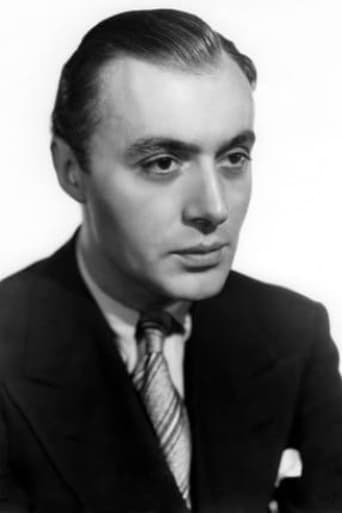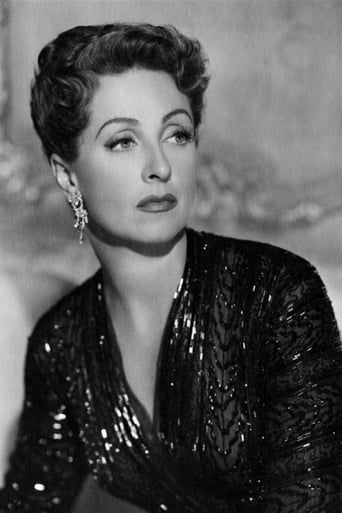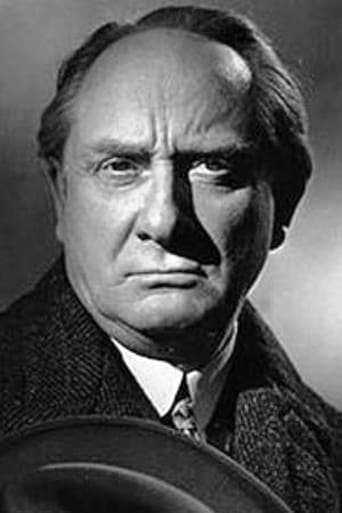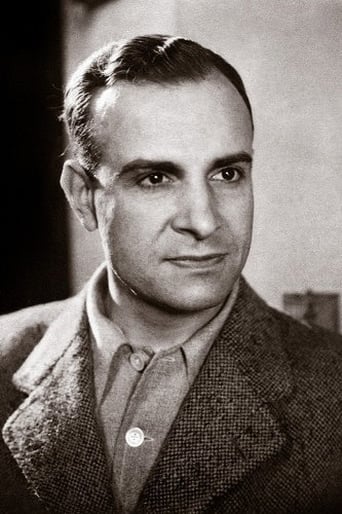Harockerce
What a beautiful movie!
Actuakers
One of my all time favorites.
Gurlyndrobb
While it doesn't offer any answers, it both thrills and makes you think.
Marva-nova
Amazing worth wacthing. So good. Biased but well made with many good points.
tikoodno
Call me a pessimist, but the ending of Madame De doesn't spell too much in the way of happiness for any of the characters, even if what one might think as the worst possible scenario didn't happen. Max Ophuls, with his brilliant film The Earrings of Madame De, doesn't allow the usual catharsis that one might expect from a romantic drama of this sort, where infidelity is merely implied and the veneer of early 20th century bourgeois is a cover for a feelings that rarely get in view. Instead, as with the rest of the film, we're given something of a wonderful contradiction, where something is compelling and graceful, but in a sort of dark way too. The doomed love of the film is one where the simple act of admitting love is a tough thing to do, and at the same time this doom is contrasted by a very swift, effortlessly moving camera, which goes around its characters trying to get us completely immersed in this world while feeling at the same time something isn't quite right. Why shouldn't Louise get what she really would want? Well, then the movie would be over pretty quickly.
Steve Pulaski
NOTE: This film was recommended to me by Tom Sutpen for "Steve Pulaski Sees It." Louise (Danielle Darrieux) is a decorated Parisian aristocrat who is married to a French army general named André (Charles Boyer). Over the years, Louise has become more spoiled, and as a result, more in debt in order to live her lavish lifestyle. In order to pay off her debts, Louise parts ways with her beautiful, heart-shaped diamond earrings, selling them back to the jeweler. Louise doesn't tell her husband about selling the earrings leading him to believe she lost them; a story which eventually reaches the presses. When André finally gets the rings back, he gives them to Lola (Lia Di Leo), the mistress he frequently sees. Overtime, Louise becomes trapped in the life she has crafted for herself, unsure of her financial security, and now with a wayward husband and a brewing contempt for life, Louise's downward spiral from bourgeois lifestyle is set in motion.Max Ophüls' The Earrings of Madame de... is a wonderfully detailed picture, immaculately conceived with luxury that is beautifully showcased in black and white. I've remarked in the past how a lavishly decorated film in black and white is different from a lavishly decorated film in color for one big reason - essence vs. emphasis. In a picture with color, cinematographers justifiably look to emphasize the color, bringing life to the film's minor details. Such a process, while eye-catching and often delightfully filmed, sets itself up for failure when it comes to trying to retain its focus on the characters. This is one of several reasons why films by Sofia Coppola and Wes Anderson often, at least with me, are difficult to connect with on a narrative/character level, largely being that the aesthetics are the main focus for the director and the respective cinematographer.Black and white filmstock, however, is much more concerned with essence and aesthetic personality in terms of getting the details right, but not intently focusing on them. This allows for the very presence of fine China, expensive clothing, and accoutrements like cigarette holders and veils to speak for themselves without stealing the eyes away from the ordinarily dialog-driven film and its characters. At times, however, and in The Earrings of Madame de...'s case, Ophüls constructs scenes that allow for the kind of visual poetry to work in a germane fashion to the character, enough where your eyes can wander but you can still remain aware of the central narrative. Consider the scene where Louise gets dressed in the morning, applying light shades of makeup and perfect aforementioned accessories to her outfit; Ophüls keeps the camera fixated on her face, and when she begins conversing with her husband, the static camera allows for details on her person and the setting to leap out at the viewer, all while never neglecting the newly introduced character dynamic.The Earrings of Madame de... is a feast for the eyes that you can devour in multiple different ways, and it's as pleasantly photographed as it is acted. Darrieux gives a tremendous performance of a character who isn't so much sympathetic as she is interesting and the trio of screenwriters here give Darrieux's Louise a layered, dynamic soul to work with. Take note of Louise's relationship with the church, one that is as fare-weathered as you can get. Louise doesn't think much of the church until she loses the earrings and her life goes into a downward spiral. Rather than having conversations or a real relationship with God, she takes Him, much like most things in her life, from her tangible possessions to her husband and the people around her, for granted and it shows as her riches and social class status dwindle.However, Ophüls' film is not a condemning work nor is it a cheap parable for gratitude and gratefulness. The Earrings of Madame de... is a film that allows its characters' actions to damn herself, and in turn, for the audience, we witness strong storytelling and characterization told through a lens that subtly emphasizes detail while affirming the film's lovely essence,all while a core object is carried through the film as a beautiful and low-key way to move the narrative. With that, it becomes a serene example that style doesn't always correlate to a lack or absence of substance in any way.Starring: Danielle Darrieux, Charles Boyer, Lia Di Leo, and Vittorio De Sica. Directed by: Max Ophüls.
antcol8
Gliding...The inexorable movement - of life.Why talk about "camera movements" - tracks, dollies, cranes - at all, if we're not going to talk about what they DO - what they MEAN.Anybody with enough money can fill their film with dolly shots.The Dance...Of lifeOf deathTrains. Balls and trains.The circularity of a "white lie"The elegance of an elegant ensemble each bringing their own life story to bear on the way they inhabit (and do they!) their roles. You don't need to know anything about this, but the more you know the deeper the film gets.Maybe the key line is when Boyer says to Darrieux "Our relationship is only superficially superficial".Those who need to "identify" with the characters in a film, and thus find that the social position of these characters makes engagement with this film impossible...Well, I just feel sorry for you. Really.I think another read through of a concise cinema book - maybe Sarris' American Cinema - is in order.What does he write about Ophuls? "His elegant characters lack nothing and lose everything."Exactly.But besides all that...Composition and the clarity of the arc. Underneath all of the gliding and circularity, an unstoppable forward motion. Carried through and fulfilled like in very,very few films. The word "Masterpiece" - unfortunate word! - must be used.One word to my fellow IMDb reviewers: I really think the word "boring" should carry the same onus as an unacknowledged spoiler. You are bored? Check yourself.This review has nearly no content, but it is very hard to write anything about perfection.
dlee2012
Like La Ronde, Madame De is an Ophuls film that deals with vice and how it affects people of different classes, with particular emphasis on the aristocracy.A well-constructed film with polished cinematography and a superb performance from the evergreen Danielle Darrieux, the piece suffers from a tedious story. The characters are vain and vacuous and the superficiality of their world is reflected in the script. Unfortunately, their boredom with life translates to a monotonous narrative. There is little change in tempo throughout to breathe life into the film and the petty dramas of these aristocrats are not enough to hold one's attention for the duration of the film.Whilst the film does offer some interesting commentary on the hollowness of a materialistic ethos, the story is simply too banal. The dramas these characters face are largely of their own doing and, thus, one feels little empathy for them, even when tragedy strikes. Ultimately, this is an immaculately made film about trivial subject matter.






